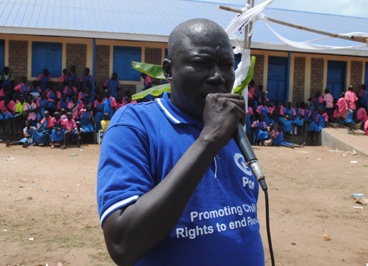Plan International targets girls’ education in E. Equatoria
By Ijoo Bosco
June 25, 2014 (TORIT) – Plan International has launched an advocacy campaign targeting girls’ education in Eastern Equatoria’s Magwi county.

Plan’s state coordinator Graham Juma said the campaign aims to improve opportunities for vulnerable girls to move beyond poverty and realise their true potential.
Advocacy efforts will seek to target prevailing cultural attitudes that undervalue girls by promoting investment in their future through education.
The campaign also aims to eliminate factors that affect access to education for girl children and contribute to mass dropout rates.
The gender advisor for Plan International, Angelina Alaa, said the organisation’s efforts would be geared towards assistance to cover school fees for vulnerable girls, as well as the provision of food and sanitary products for female students.
She called on parents and education stakeholders to help support girls’ education in Eastern Equatoria state
“Our young girls do enroll in great numbers from class one to five and [then] they start dropping in huge number, only for you to realise five or less might have reached standard eight. Is this not a challenge for us parents?” said Alaa.
Among the major contributing factors to high dropout rates among girls is parental neglect, bad cultural practices, financial difficulties and lack of adequate sanitary care.
Many female pupils said their education had also been affected by their parents’ alcohol addiction.
Achiro Regina, a pupil in level four in Magwi primary school, said she often struggled to find the money to buy sanitary products, and that financial difficulty was one of the major stumbling blocks to her pursuit of education and a future career.
Head teacher of Magwi Central primary school Loboi Aldo said there are several challenges in preventing early dropout rates for girls.
He said there was a need for trained female teachers, as well as proper shelter and space that specifically catered for girls.
He has also called for collective efforts among parents, supporting organisation and schools across Eastern Equatoria to help boost education access for girls in the state.
(ST)
